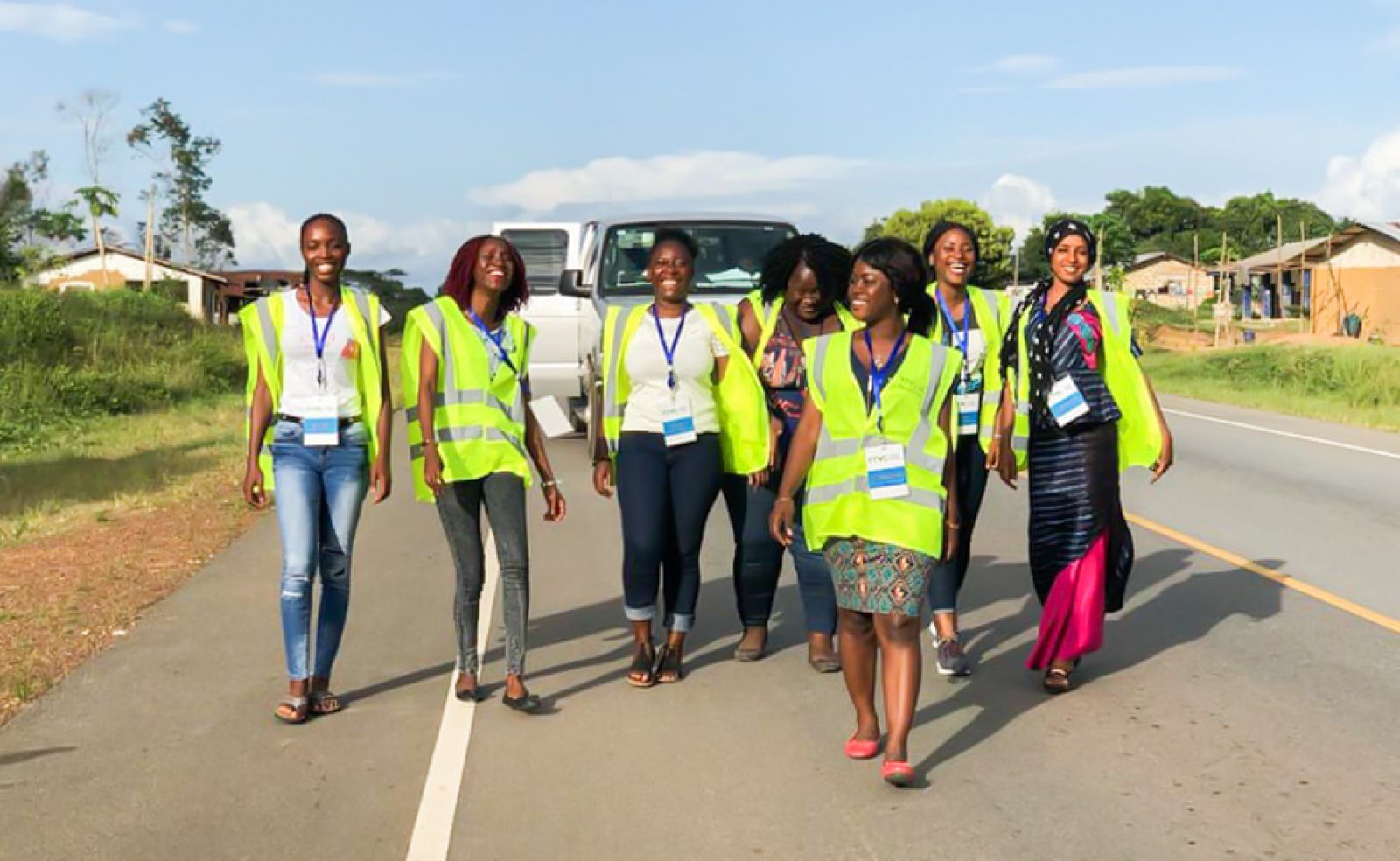
Members of the Visionary Young Women in Leadership (VYWL), a volunteer team of women who work to increase women's political participation in Liberia
SHARE
In 2005, Liberia’s Ellen Johnson Sirleaf became the first elected female head of state in Africa, marking a milestone for the country and the continent. Although a woman occupied the highest elected office for twelve years, Liberian women continue to struggle to obtain leadership roles in politics. In hopes of reversing this trend, a group of 16 inspiring women volunteers, called the Visionary Young Women in Leadership (VYWL), are using research to help Liberian women understand and overcome the barriers that keep women from rising through the political ranks.
The members of VYWL first met as participants in an NDI training program called “Getting Ready to Lead” (GRTL), which was designed to provide women with the leadership and political skills to engage in Liberia’s 2017 election process. The VYWL formed as way to continue collaboration and promote women’s leadership after the election. The members of VYWL are between 20 and 34 years old, and come from diverse academic fields, but share a commitment to civic activism and improving their communities.
Before they could begin their work on closing the gender gap, the VYWL sought to first fill the data gap on the number of women in leadership roles. NDI trained the young women to use the Diamond Leadership Model (DLM), a tool developed by the United States Agency for International Development (USAID) to map the number of women at different levels of leadership in four sectors of government (executive, legislative, judiciary, security). The tool uses weighted indicators to establish a power score that shows the level of women’s political empowerment.
The young women wanted to take their research a step further to understand the barriers that women face in obtaining leadership roles, and how women who had obtained senior positions were able to overcome these challenges. NDI worked with the young women to develop questions, practice their interviewing skills and set meetings with some of Liberia’s most prominent female leaders, including a minister, members of the legislature, judges and security personnel. Seventeen interviews were conducted, which supplemented the information gathered through the DLM, giving the researchers insight on potential paths to leadership positions for women.
The interviews not only produced data for the VYWL’s report, it also provided an opportunity for the young women to learn from, and build relationships with, women who have risen to the top of their professions. “We are privileged to hear [these stories] from the women themselves,” one VYWL team member said, “it made us feel inspired, impressed and challenged—we want to do even more than they have done.”
One interviewee told a VYWL researcher, “Don’t let your past mistakes influence your future. Learn from the mistakes. Make your path right.” The researcher later told NDI that this taught her that mistakes are not a barrier to leadership.
On September 27, the VYWL shared their “Report on Women’s Empowerment in Liberia” with over 100 participants at a roundtable event that included civil society organizations, youth and student communities, political parties, all four sectors of government, media and international organizations. Their leadership mapping indicated a power score of 63, a regression of progress from the power score of 75 in a 2014. The report also identified key barriers to women obtaining leadership roles, and provided recommendations to help a new generation of women overcome these barriers. The group particularly emphasized illiteracy and a lack of education as barriers for aspiring young women leaders. Aside from keeping girls in school, key recommendations included providing mentoring opportunities for young women, equipping them with leadership skills and creating a think tank to help fill the need for quality research to produce policies on issues related to women.
The VYWL are hoping to translate their recommendations into action, including mentoring other young women. With support from a female member of the House of Representatives, the volunteers have started holding “career development days” at high schools to show young girls the career paths available to them. The VYWL team hopes that these young women will see the value in education and engaging in leadership in their schools and communities.
Read the full Visionary Young Women in Leadership's report on women empowerment in Liberia here.


